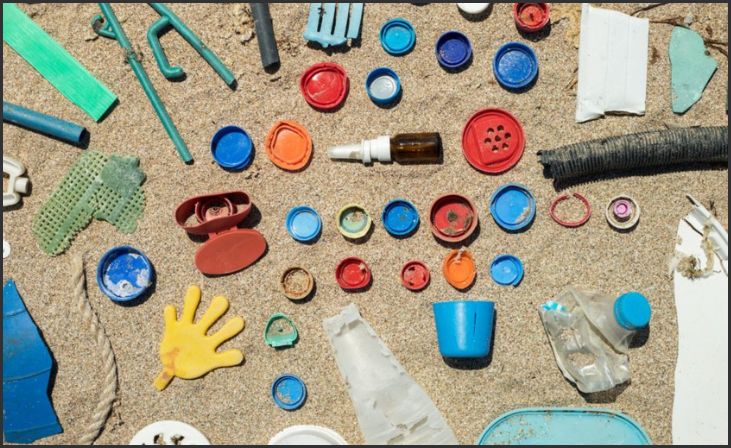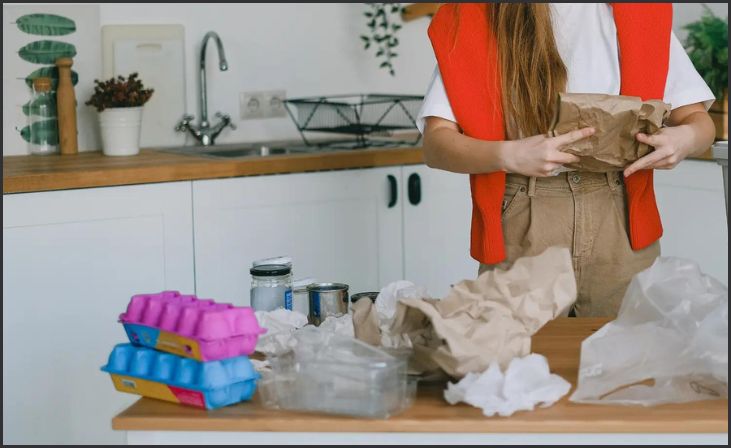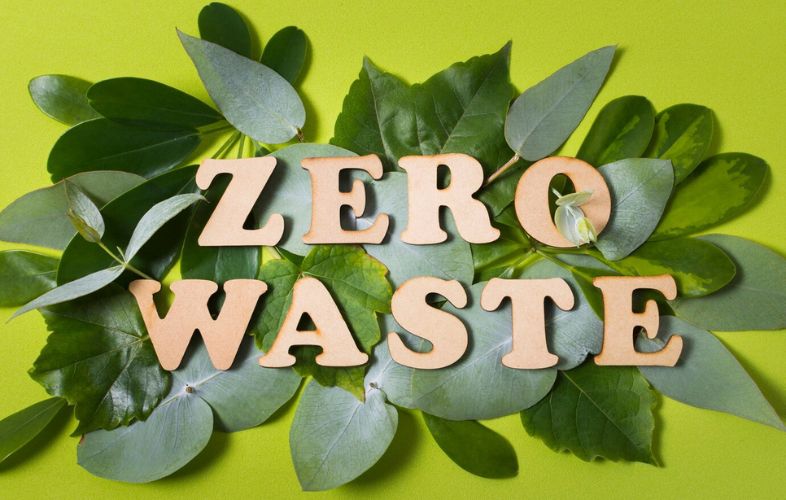Easy Zero Waste Tips – Living a zero waste lifestyle transcends mere trendiness; it represents a profound commitment to diminishing our environmental footprint. Within the pages of this guide, we embark on a journey to unravel seven straightforward yet transformative tips. These invaluable suggestions aim not only to assist you in seamlessly integrating zero waste practices into your daily routine but also to empower you to play an active role in fostering a healthier, more sustainable planet.
Embracing a zero waste lifestyle is more than just a personal choice; it’s a collective effort towards environmental preservation. Throughout the following sections, we’ll delve into practical insights and actionable advice that goes beyond the superficial aspects of a trend, guiding you towards making conscientious choices that resonate with the broader goal of creating a greener, more eco-friendly world.
1. Reduce Single-Use Plastics:

Taking the initiative to reduce single-use plastics involves a conscientious effort to make sustainable choices in our daily lives. By swapping out disposable plastics for reusable alternatives, such as a sturdy water bottle or cloth bags, we actively contribute to a significant reduction in plastic waste. This seemingly small adjustment can have a profound impact, preventing countless plastic items from ending up in landfills and oceans. Saying no to plastic straws becomes a habit that not only benefits the environment but also sets an example for others to follow. Through collective action, we become part of a broader movement working towards a cleaner and greener planet.
2. Composting at Home:
Composting at home transforms kitchen scraps into a valuable resource, enriching soil and closing the loop on organic matter. This straightforward practice not only reduces the amount of waste sent to landfills but also creates nutrient-rich compost that enhances the health of our gardens. It’s a simple yet effective way to participate in the natural recycling process, turning food scraps into a valuable asset for sustainable gardening. Composting fosters a sense of responsibility for our waste, showcasing how small actions in our homes can contribute to a healthier and more circular ecosystem.
Also Read:- WAYS TO WALK BETTER DAILY
3. Embrace Reusable Shopping Bags:
Ditching plastic bags for reusable alternatives is a tangible step towards reducing plastic pollution. Reusable bags not only serve as a sustainable choice but also make a statement about our commitment to environmental responsibility. Keeping a reusable bag handy, whether folded in a pocket or stowed in a car, ensures that we are always prepared for impromptu shopping trips. This simple act gradually shifts our reliance on disposable items, fostering a mindset that values long-term sustainability over short-term convenience. Embracing reusable shopping bags becomes a daily practice that aligns with a broader ethos of mindful consumerism and waste reduction.
4. Mindful Water Usage:

Conserving water through mindful usage involves adopting practical strategies that collectively make a significant impact on our overall water footprint. Fixing leaks promptly and using a broom instead of a hose for outdoor cleaning are simple yet effective measures. Collecting rainwater for plants not only reduces dependence on treated water but also utilizes a naturally occurring resource. Every drop saved contributes to the preservation of this precious resource, promoting water sustainability in our communities. By incorporating these practices into our daily routines, we actively engage in responsible water management, recognizing the interconnectedness of our actions with the health of our ecosystems.
5. Sustainable Food Choices:
Opting for locally sourced, organic, and seasonal foods is a powerful choice that resonates both with personal health and environmental sustainability. This shift in dietary habits supports local farmers, reduces the carbon footprint associated with transportation, and promotes a more resilient and sustainable food system. Making informed choices about the source and production methods of our food contributes to a healthier planet and supports ethical agricultural practices. By understanding the environmental impact of our dietary decisions, we become advocates for a more sustainable and equitable global food supply chain.
6. DIY Eco-friendly Cleaning Products:
Creating eco-friendly cleaning products at home is a practical and cost-effective approach to maintaining a clean living space while minimizing the use of harsh chemicals. Ingredients like vinegar and baking soda serve as versatile and natural alternatives, offering effective cleaning without negatively impacting the environment. By incorporating do-it-yourself (DIY) cleaning solutions into our routines, we not only reduce our reliance on commercially produced cleaning products but also contribute to a healthier indoor environment. This mindful choice aligns with the principles of sustainability, demonstrating that everyday household tasks can be performed in an eco-conscious manner.
Also Read:- MUST-READ PHILOSOPHY BOOKS
7. Upcycling and Repurposing:

Unleashing creativity through upcycling and repurposing transforms old and discarded items into something new and valuable. This practice not only reduces waste but also adds a personal touch to our living spaces. Furniture, containers, or clothing that might have otherwise ended up in landfills find new life and purpose through innovative redesign. Upcycling becomes a form of artistic expression, showcasing how individual creativity can contribute to sustainable living. By incorporating upcycled items into our homes, we actively participate in the circular economy, promoting the idea that resources can be reused and repurposed instead of discarded. Upcycling becomes a powerful statement about our commitment to sustainable living and responsible consumption.
The Importance of Zero Waste Living
Recognizing the significance of zero waste living unveils a perspective that extends far beyond individual behaviors; it is, in essence, a dynamic global movement geared towards the substantial reduction of waste generation. This collective endeavor involves the adoption of straightforward adjustments in our day-to-day lives, culminating in a harmonious symphony of actions that contribute to the overarching goal of mitigating pollution, conserving valuable resources, and steering humanity towards a more sustainable and environmentally conscious future.
The gravity of zero waste living lies not only in the personal choices we make but in our active participation in a worldwide initiative. Each minor alteration to our daily routines, from reducing single-use plastics to embracing eco-friendly practices, carries the potential to make a substantial impact. It is a holistic approach that transcends individual boundaries, intertwining the actions of people worldwide into a tapestry of change, working collectively to alleviate the strain on our planet.
Conclusion
In conclusion, adopting a zero waste lifestyle transcends being a mere eco-conscious choice; it’s a profound commitment to shaping a better future for our planet. Through the exploration of seven easy zero waste tips, we’ve uncovered not just actionable steps but a holistic approach towards sustainable living.
Our journey began by understanding that zero waste living is more than a passing trend; it’s a collective movement to curtail waste on a global scale. From reducing single-use plastics to embracing reusable shopping bags, each tip contributes to a larger narrative of environmental preservation.
Frequently Asked Questions
Zero waste living is a lifestyle that aims to minimize the generation of waste, emphasizing responsible consumption and waste reduction practices. It is crucial because it contributes to a healthier planet by reducing pollution, conserving resources, and fostering a more sustainable future.
Begin by making small, manageable changes in your daily routine. Reduce single-use plastics, embrace reusable alternatives, compost kitchen waste, and make mindful choices about your consumption. Gradual adjustments lead to a more sustainable lifestyle.

Leave a Reply